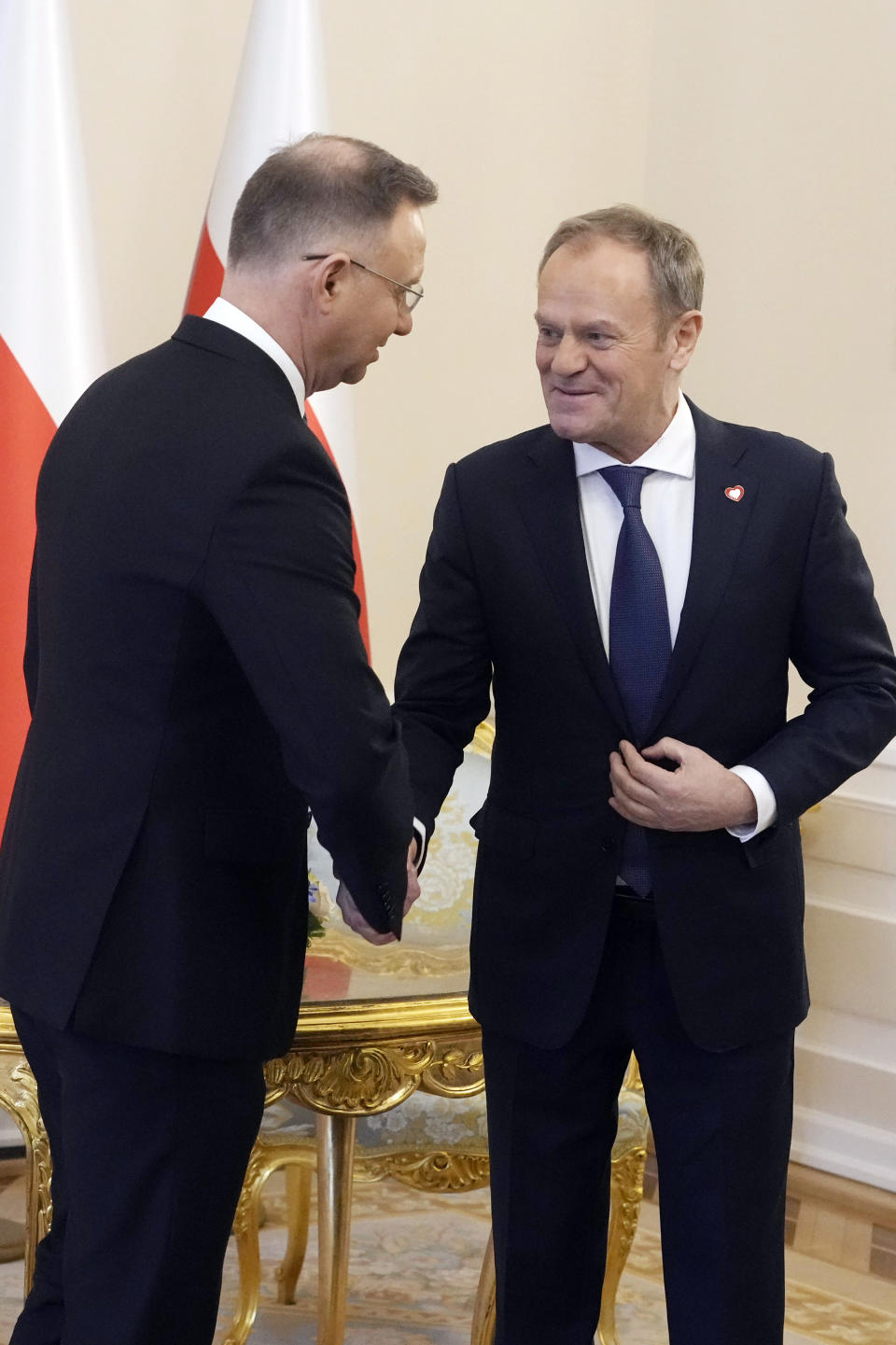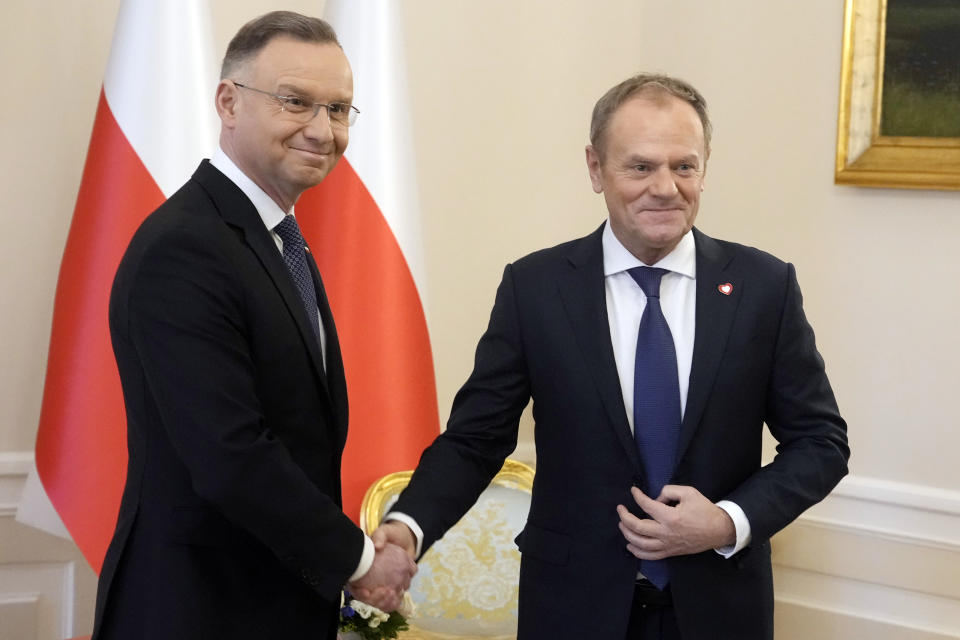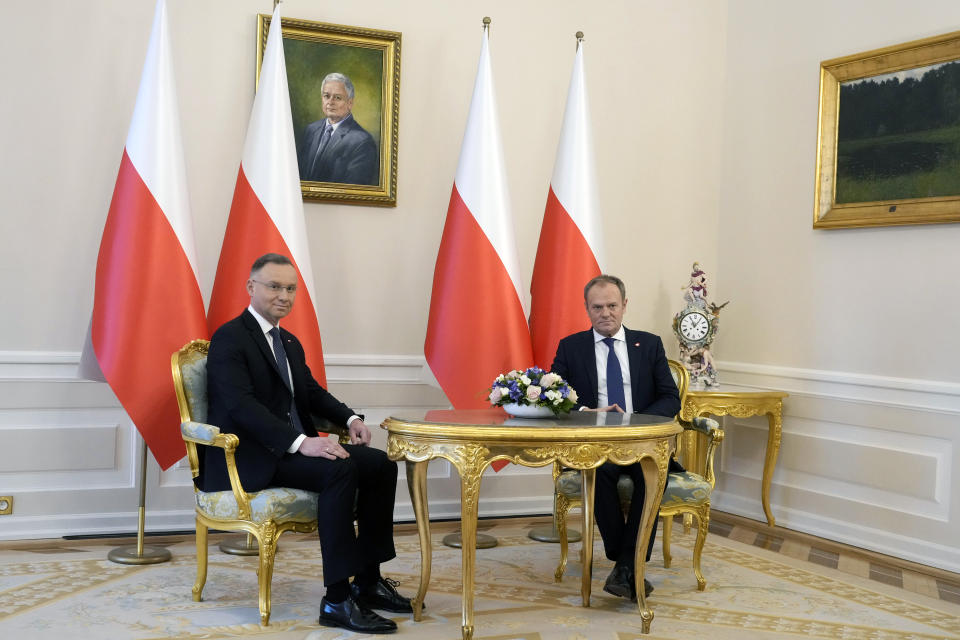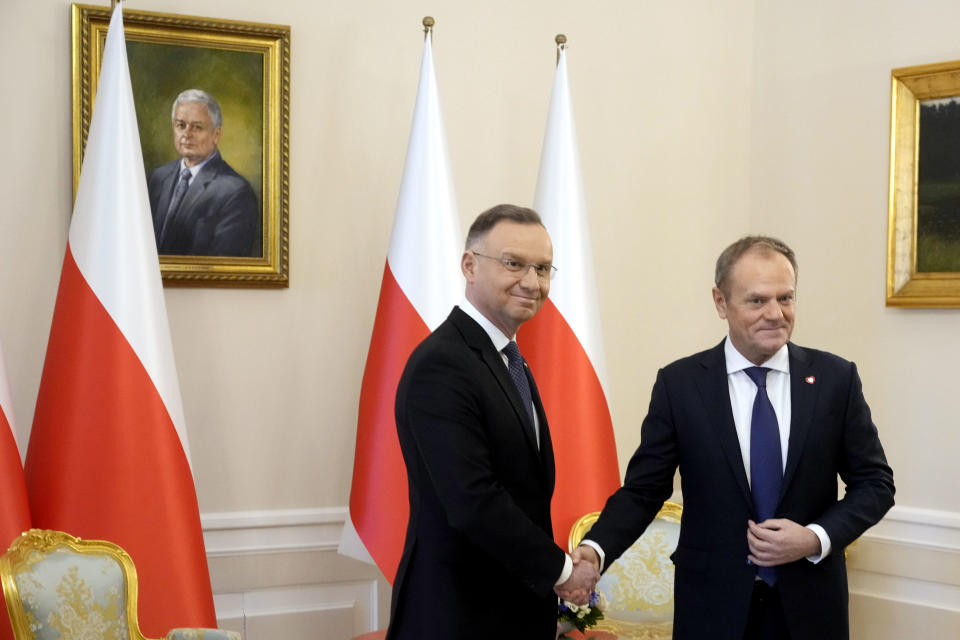Poland's president and new prime minister remain divided on rule of law despite talks
WARSAW, Poland (AP) — Poland’s president and new prime minister said Monday they remain divided on the key subject of rule of law in the country, despite one-on-one talks in search of common ground in various areas.
Centrist Prime Minister Donald Tusk met with pro-opposition President Andrzej Duda to discuss Poland's security ahead of Tusk's planned visit to Ukraine, but also to identify areas where they can cooperate in the society's interest above their sharp political divisions.
In a sign that did not bid well for their future cooperation, both later said that they had found no common ground in the very sensitive area of the rule of law, where Poland's previous government and Duda himself clashed with the European Union.
Tusk's government is taking steps to reverse the controversial policies of its predecessors, making new appointments to key offices, wrestling control of state-owned media and even arresting two former government ministers convicted and sentenced by court for abuse of power.
Duda said he had “appealed” to Tusk to leave things as they were in some areas and to “give up attempts at violating the law.”
He said that their talk Monday centered on the arrest last week of the previous interior minister, Mariusz Kamiński and his deputy, Maciej Wąsik, whom Duda is seeking to pardon in a lengthy procedure, and on the recent change of chief national prosecutor, opposed by Duda and the previous ruling team.
Last week Duda, who has a doctor's degree in law, drew criticism when he accused Tusk's government of applying the “terror of the rule of law.”
Duda's aide Marcin Mastalerek says the president will be vetoing bills proposed by the government.
Duda's second and final term ends in August 2025, but his position could be weakened after the May 2025 election. In office since 2015, Duda has been often criticized for bending — or even violating — Poland's Constitution as he backed the Law and Justice party's government.
Tusk stressed Monday that abiding by the law is one of his government's principal guidelines and that all Poles, from top politicians to teenagers, are equally responsible before the law. He said, however, he did not think he had persuaded Duda to see the rule of law in the same way.
Tusk said his coalition government, which took office last month after an alliance of parties opposed to Law and Justice won parliamentary election, will continue to make tough decisions “because there is no other possibility of cleansing the situation in Poland.”
Referring to the obstruction that Duda and Law and Justice have been mounting on his government, Tusk said he had been expecting that because “it's the result of the determination of those who have lost power to still keep their privileges, their position or sense of impunity." But, he added, "there can be none of that.”





